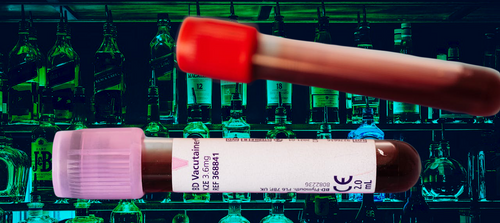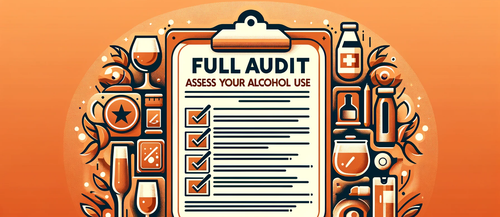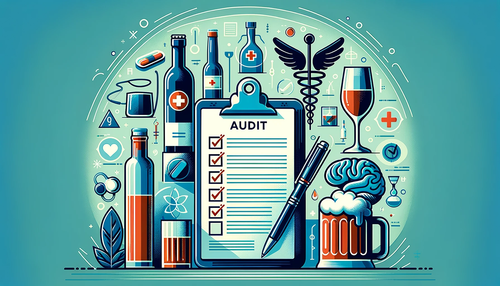
The difference between alcohol abuse, alcohol dependence, and alcoholism
Definitions of Alcohol Misuse
In our society, alcohol plays a complex role. It's often a part of social gatherings but, unfortunately, also a source of addiction for many. To understand alcohol-related issues, it's crucial to understand the different definitions of alcohol abuse, alcohol dependence, and alcoholism. These terms can be really confusing but have important differences.
Definitions at a Glance
Alcohol Abuse
Alcohol abuse refers to a pattern of drinking that results in significant and recurrent adverse consequences. Individuals who abuse alcohol may continue drinking despite problems with health, relationships, or responsibilities at work, school, or home. It's characterised by a hazardous use of alcohol that is not necessarily accompanied by physical dependence or an inability to stop drinking.
What is tolerance?
Tolerance to alcohol means that over time, a person needs to drink more alcohol to feel the same effects they used to feel with less alcohol. It's like if you eat the same type of candy every day, eventually, you might need more candy to feel as happy as you did the first time you ate it. With alcohol, your body gets used to it, so you need more to get the buzz or relaxation you're looking for.
Alcohol Dependence
Alcohol dependence is a medical condition marked by a physical need for alcohol, where individuals may suffer withdrawal symptoms if they stop drinking. It involves a higher tolerance to alcohol's effects and a strong desire to drink. This makes it difficult to control the amount that is drunk. Dependence indicates a more serious level of addiction than abuse, with significant implications for an individual's health and functioning.
Alcohol Dependence vs. Alcohol Abuse
Distinguishing between alcohol abuse and dependence is essential for understanding the severity of an individual's situation. While alcohol abuse can lead to serious problems, it does not include the physical dependence characteristic of alcohol dependence or alcoholism. Recognising this distinction helps in identifying the most appropriate interventions and support systems.
Alcohol Addiction
Alcohol addiction is a broader term that includes not only the physical dependence on alcohol, but also the psychological and behavioural aspects of alcohol use disorder. Addiction involves a compulsive desire to drink alcohol despite the negative consequences it may have on a person's life, health, and relationships. It includes both the physical dependence and a strong psychological drive to consume alcohol.
Alcoholism
Alcoholism, often used interchangeably with alcohol dependence, encompasses both a physical dependency on alcohol and a psychological compulsion to drink. It is considered a chronic disease characterized by uncontrolled drinking and preoccupation with alcohol, despite its negative effects on a person's life. Alcoholism is the most severe form of alcohol addiction.
Alcohol Misuse as a Medical and Psychiatric Disorder
Alcohol Dependence is the diagnostic term used for a medical condition in ICD-11: The International Classification of Diseases.
Alcohol Use Disorder is the diagnostic term used in DSM-V: Diagnostic and Statistical Manual by the American Psychiatric Association.
Causes
The causes of alcohol misuse and dependence are multifaceted, ranging from genetic predispositions and psychological stress to social pressures and environmental factors. Understanding these causes is crucial for addressing the root of the problem and providing effective support and treatment.
Psychological Dependence
Psychological dependence on alcohol involves a mental and emotional compulsion to drink, often used as a coping mechanism for stress, anxiety, or depression. This aspect of alcoholism underscores the need for comprehensive treatment approaches that address both the physical and psychological facets of addiction.
Summary
Alcohol plays a dual role in society, being both a staple in social gatherings and a potential source of addiction. Understanding the distinctions between alcohol abuse, dependence, and alcoholism is essential to grasp the complexity of alcohol-related issues. Alcohol abuse involves harmful drinking patterns without physical dependence, whereas alcohol dependence includes a physical need and withdrawal symptoms. Alcohol addiction encompasses both the physical and psychological aspects of alcohol use disorder, leading to a compulsive desire to drink despite adverse consequences. Alcoholism, the most severe form of addiction, combines physical dependency and psychological compulsion.
Collection list
- Choosing a selection results in a full page refresh.

 Contact Alcoholics Anonymous
Contact Alcoholics Anonymous






